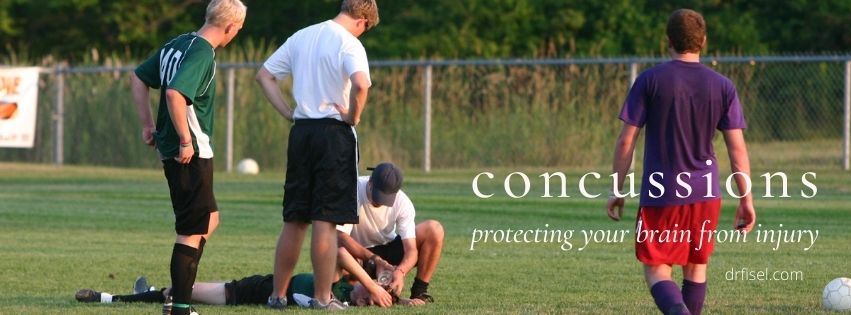
In the midst of the transition from fall to winter:
We plan to watch our kids participate in athletic activities at school,
We plan to get on our road bikes before the snow flies,
We plan for that first ski run of the season.
We often talk about our plans for this transitional time…
BUT WHAT ABOUT WHEN THINGS DON’T GO AS PLANNED?
Statistics show that either you or someone you know has been involved in a collision that may have caused your brain to be injured in a significant way. (SOURCE)
And, although we know that helmets are helpful in protecting humans from head injuries, they are not 100% effective in preventing concussions.
Here’s why…
The CDC defines a concussion as “a type of traumatic brain injury—or TBI—caused by a bump, blow, or jolt to the head or by a hit to the body that causes the head and brain to move rapidly back and forth.
This sudden movement can cause the brain to bounce around or twist in the skull, creating chemical changes in the brain and sometimes stretching and damaging brain cells.” (SOURCE)
The tricky thing about brain injuries is that they do not present the same in any one person. Two people can have similar seeming injuries and have different symptoms and outcomes.
In fact, many high schools and colleges are gathering baseline brain data on their athletes so they can be more proactive in a situation where a concussion may occur.
After a head injury, you might notice certain signs of a concussion in others:
- Can’t recall events prior to or after a hit or fall.
- Appears dazed or stunned.
- Forgets an instruction, is confused about an assignment or position, or is unsure of the game, score, or opponent.
- Moves clumsily.
- Answers questions slowly.
- Loses consciousness (even briefly).
- Shows mood, behavior, or personality changes.
Or the person receiving the head injury might report certain symptoms such as:
- Headache or “pressure” in head.
- Nausea or vomiting.
- Balance problems or dizziness, or double or blurry vision.
- Bothered by light or noise.
- Feeling sluggish, hazy, foggy, or groggy.
- Confusion, or concentration or memory problems.
- Just not “feeling right,” or “feeling down”.
If, after a head injury, you show or feel symptoms that are common in concussion scenarios, in almost all cases the key to recovery is reducing oxidative damage that causes inflammation in the brain.
One of the most important ways to reduce oxidation and inflammation in the brain is through diet and nutrition.
A common anti-inflammatory nutritional regimen would be the Mediterranean Diet or something similar. Stick with fruits, vegetables, nuts, legumes, lean meats, dairy products, eggs, whole grains and healthy fats.
Also, antioxidants/ anti-inflammatory supplements such as a higher DHA version of omega 3 fatty acids, Zinc, Curcumin, Creatine, Glutathione, NAC and green tea have been shown to reduce inflammation and promote brain healing. (SOURCE)
Dr. Fisel can help you find natural solutions and relief if you are recovering from the symptoms of concussions, brain inflammation or brain injury.
If you live in the Guilford/ Branford/ New Haven/ Madison/ Clinton area and would like to learn more about the innovative programs Dr. Fisel has to offer, call (203) 453-0122 or CLICK HERE to schedule a consultation.
RESOURCES:
Brain Injury Association of America
Traumatic Brain Injury: Impact, Assessment & Management of Concussion & MTBI


